Pepe Escobar says revelations of major money laundering in Brazil give the former president an opening to go for broke.
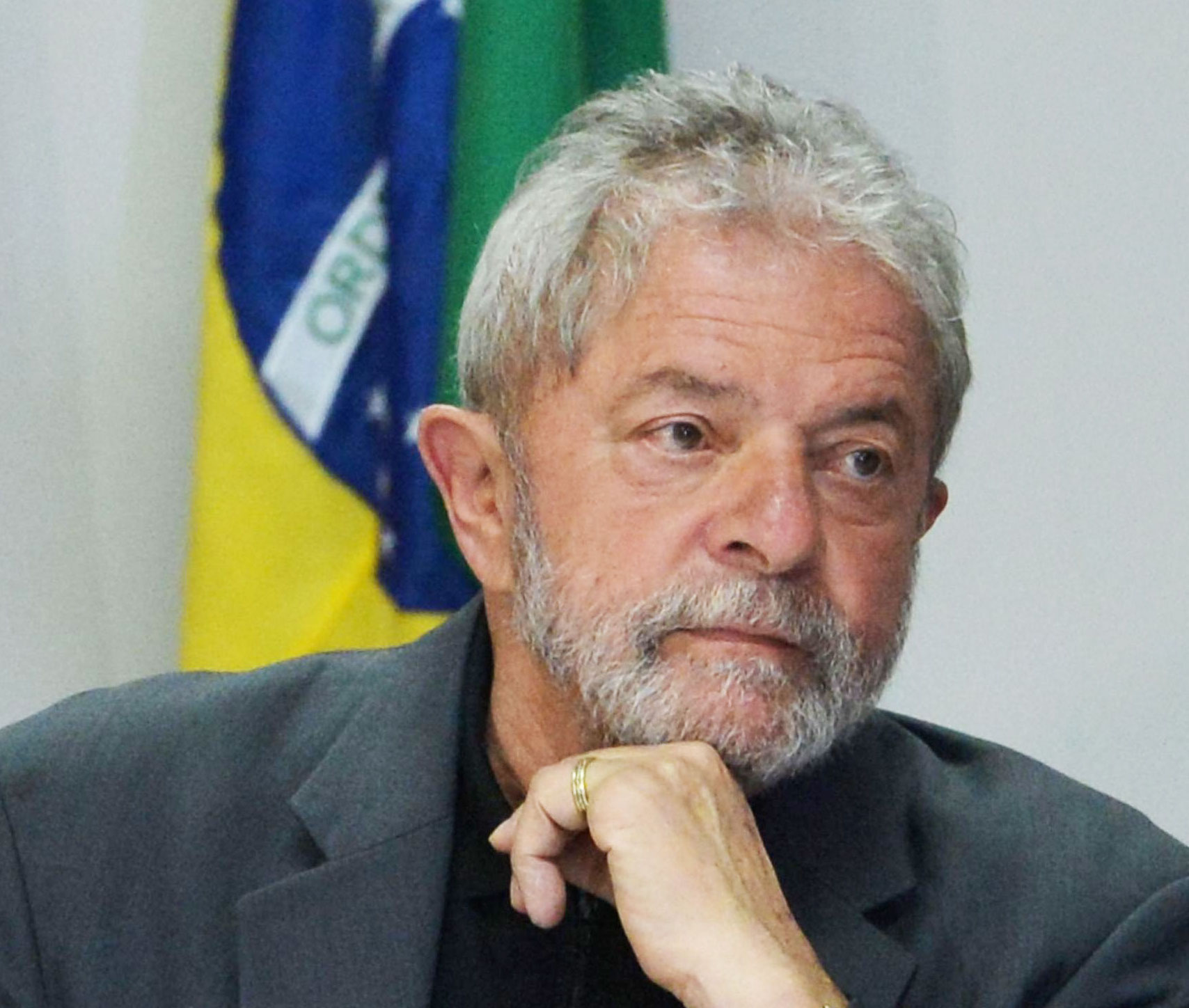
Luiz Inácio Lula da Silva in 2015. (Valter Campanato, Agência Brasil, CC BY 3.0, Wikimedia Commons)
By Pepe Escobar
The Asia Times
 Decades after the fact, a political earthquake that should be rocking Brazil is being met with thunderous silence.
Decades after the fact, a political earthquake that should be rocking Brazil is being met with thunderous silence.
What is now described as the Banestado leaks and CC5gate is straight out of vintage WikiLeaks: a list, published for the first time in full, naming names and detailing what is one of the biggest corruption and money laundering cases in the world for the past three decades.
This scandal allows for what Michel Foucault characterized as the archeology of knowledge. Without understanding these leaks, it’s impossible to place in the proper context the sophisticated Hybrid War unleashed by Washington on Brazil initially via NSA spying on President Dilma Roussef’s first term (2010-2014), all the way to the subsequent Car Wash corruption investigation that jailed former President Luiz Inácio Lula da Silva and opened the way for the election of neofascist patsy Jair Bolsonaro as president.
The scoop on this George-Orwell-does-Hybrid War plot belongs, once again, to independent media: the small website Duplo Expresso, led by a young, daring Bern-based international lawyer named Romulus Maya, which first published the list.
An epic, five-hour podcast brought together the three key protagonists who denounced the scandal in the first place, back in the late 1990s, and now are able to analyze it anew: then governor of Parana state, Roberto Requiao; federal prosecutor Celso Tres; and police superintendent, now retired, Jose Castilho Neto.
In an earlier podcast, Maya and anthropologist Piero Leirner, Brazil’s foremost analyst of Hybrid War, briefed me on the the myriad political intricacies of the leaks while we discussed geopolitics in the Global South.
The CC5 lists are here, here , and here . Let’s see what makes them so special.
The Mechanism
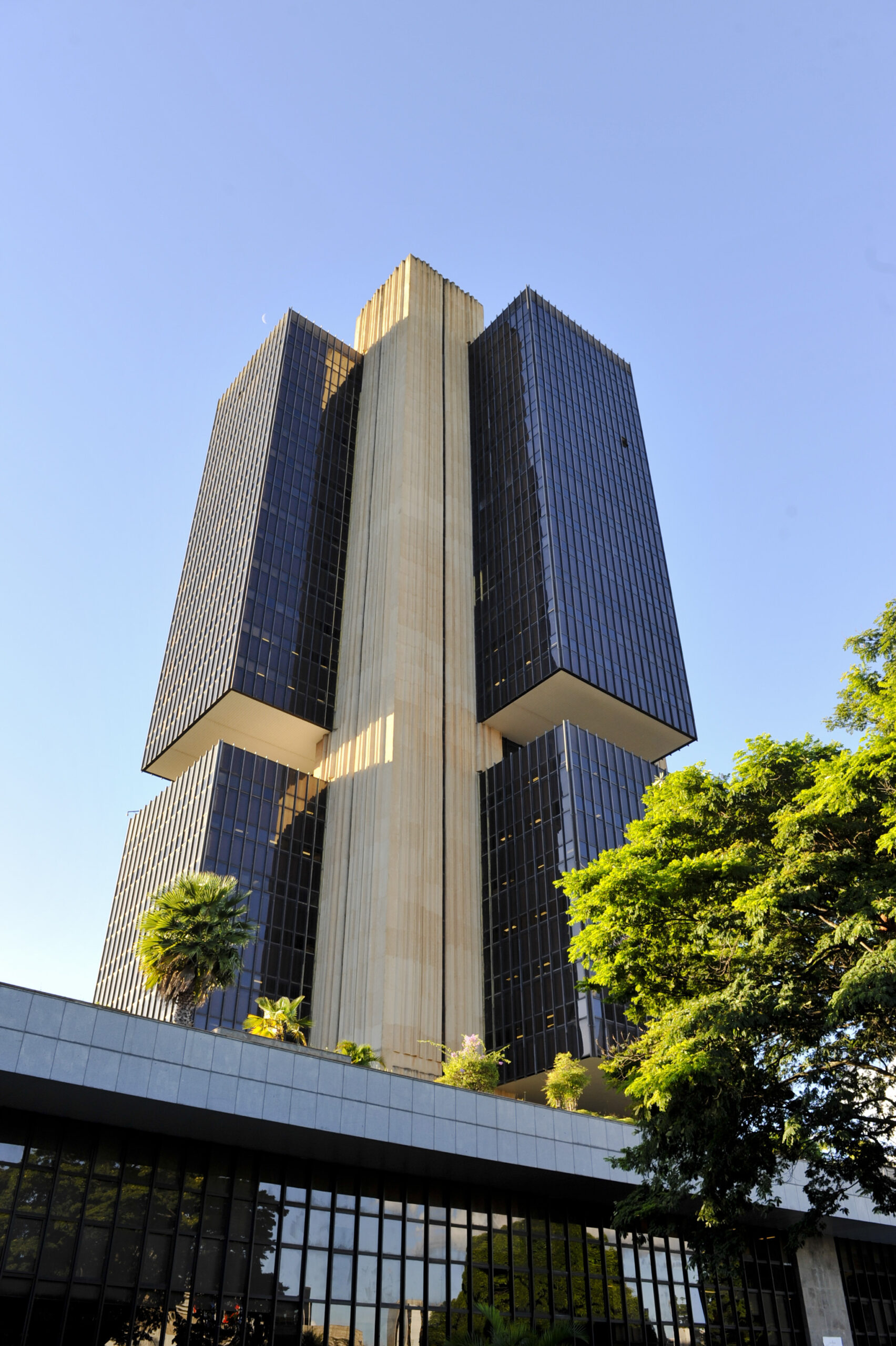
Brazil’s central bank in Brasilia. (Senado Federal, CC BY 2.0, Wikimedia Commons)
Way back in 1969, the Brazilian Central Bank created what was described as a “CC5 account” to facilitate foreign companies and executives to legally wire assets overseas. For many years the cash flow in these accounts was not significant. Then everything changed in the 1990s – with the emergence of a massive, complex criminal racket centered on money laundering.
The original Banco do Estado do Parana (Banestado) investigation started in 1997. Federal prosecutor Celso Tres was stunned to find that from 1991 to 1996 no less than $124 billion in Brazilian currency was wired overseas. Between 1991 and 2002 that ballooned to a whopping $219 billion – placing Banestado as one of the largest money laundering schemes in history.
Tres’ report led to a federal investigation focused in Foz do Iguacu in southern Brazil, strategically located right at the Tri-Border Area of Brazil, Argentina and Paraguay, where local banks were laundering vast amounts of funds through their CC5 accounts.
This is how it worked. U.S. dollar dealers in the black market, linked to bank and government employees, used a vast network of bank accounts under the name of unsuspecting ”smurfs” and phantom companies to launder illegal funds from public corruption, tax fraud and organized crime, mainly through the Banco do Estado do Parana branch in Foz do Iguacu. Hence it is called the Banestado case.
The federal investigation was going nowhere until 2001, when police superintendent Castilho ascertained that most of the funds were actually landing in accounts at the Banestado branch in New York. Castilho arrived in New York in January 2002 to turbo-charge the necessary international money tracking.
Through a court order, Castilho and his team reviewed 137 accounts at Banestado New York, tracking $14.9 billion. Though the CC5 accounts were meant only for foreigners to use, in quite a few cases, the beneficiaries had the same name of Brazilian politicians then serving in Congress, cabinet ministers and even former presidents.
After a month in New York, Castilho was back in Brazil carrying a hefty 400-page report. Yet, despite the overwhelming evidence, he was dropped out of the investigation, which was then put on hold for at least a year. When the new Lula government took power in early 2003, Castilho was back in business.
In April 2003, Castilho identified a particularly interesting Chase Manhattan account named “Tucano” – the nickname of the Partido da Social Democracia Brasileira (PSDB) led by former President Fernando Henrique Cardoso, who was in power before Lula and always kept very close ties to the Clinton and Blair political machines.
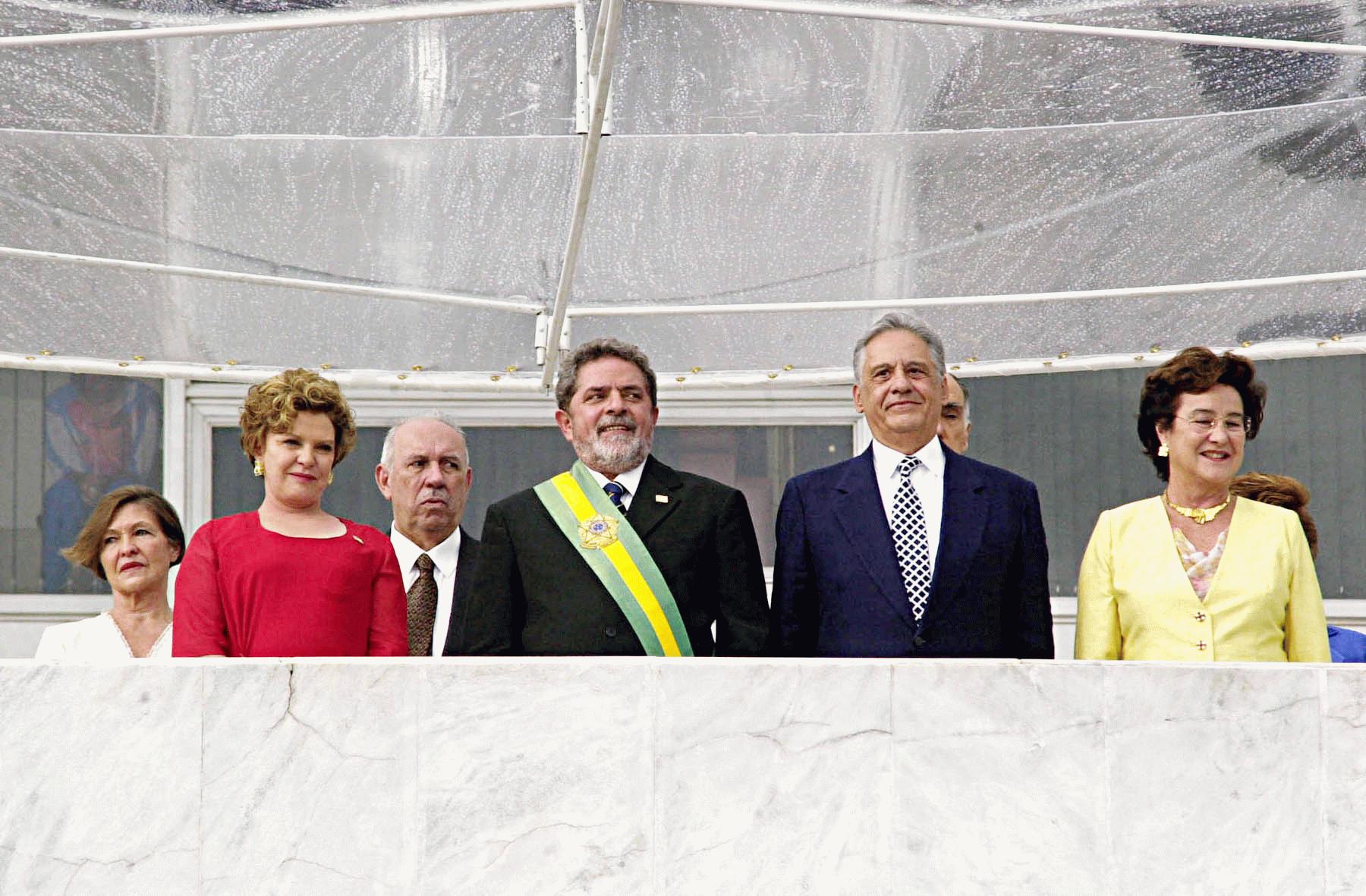
President Luiz Inácio Lula da Silva and wife Marisa Letícia, President Fernando Henrique Cardoso and wife Ruth Cardoso, Jan. 1, 2003 at Lula’s inauguration. (Marcello Casal Jr., Agência Brasil, CC BY 3.0, Wikimedia Commons)
Castilho was instrumental in setting up a parliamentary inquiry commission over the Banestado case. But again, this commission led nowhere – not even a vote on a final report. Most companies involved negotiated a deal with the Brazilian Internal Revenue Service and thus ended any possibility of legal action in regard to tax evasion.
Banestado Meets Car Wash
In a nutshell, the two largest political parties – Cardoso’s neoliberal PSDB and Lula’s Workers’ Party (which never really faced down imperial machinations and the Brazilian rentier class) actively buried an in-depth investigation. Moreover Lula, coming right after Cardoso, and mindful of preserving a minimum of governability, made a strategic decision to not investigate PSDB, or “Tucano,” corruption, including a slew of dodgy privatizations.
New York prosecutors duly prepared a special Banestado list for Castilho of what really mattered for a criminal prosecution to proceed: the full circle of the money laundering scheme, with
(i) funds first illegally remitted out of Brazil using the CC5 accounts,
(ii) passing through the New York branches of the Brazilian banks involved,
(iii) reaching offshore bank accounts and trusts in tax havens (e.g., Cayman, Jersey, Switzerland) and then finally
(iv) going back to Brazil as – fully laundered – “foreign investment,” for the actual use and enjoyment of the final beneficiaries who first got the unaccounted-for money out of the country using the CC5 accounts.
But Brazilian Justice Minister Marcio Thomaz Bastos, appointed by Lula, then nixed it. As superintendent Castilho metaphorically put it, “This, deliberately, prevented me from going back to Brazil with the murdered body.”
While Castilho never got hold of the critical list, at least two Brazilian congressmen, two senators and two federal prosecutors, who would later rise to fame as Car Wash investigation “stars,” Vladimir Aras and Carlos Fernando dos Santos Lima, did get the list.
Why and how the list (let’s call it the “body bag”) never found its way into the criminal proceedings back in Brazil is an extra mystery wrapped up inside the enigma.
Meanwhile, there are “unconfirmed” reports (several sources would not go on record on this) that the list might have been used for outright extortion of the individuals, mostly billionaires, featured on it.
Extra sauce in the judicial sphere comes from the fact that the provincial judge in charge of burying the Banestado case was none other than Sergio Moro, the self-serving Elliot Ness figure who in the next decade would rise to superstar status as the capo di tutti i capi of the massive Car Wash investigation and subsequent justice minister under Bolsonaro. Moro ended up resigning and is now, de facto, already campaigning for president in 2022.
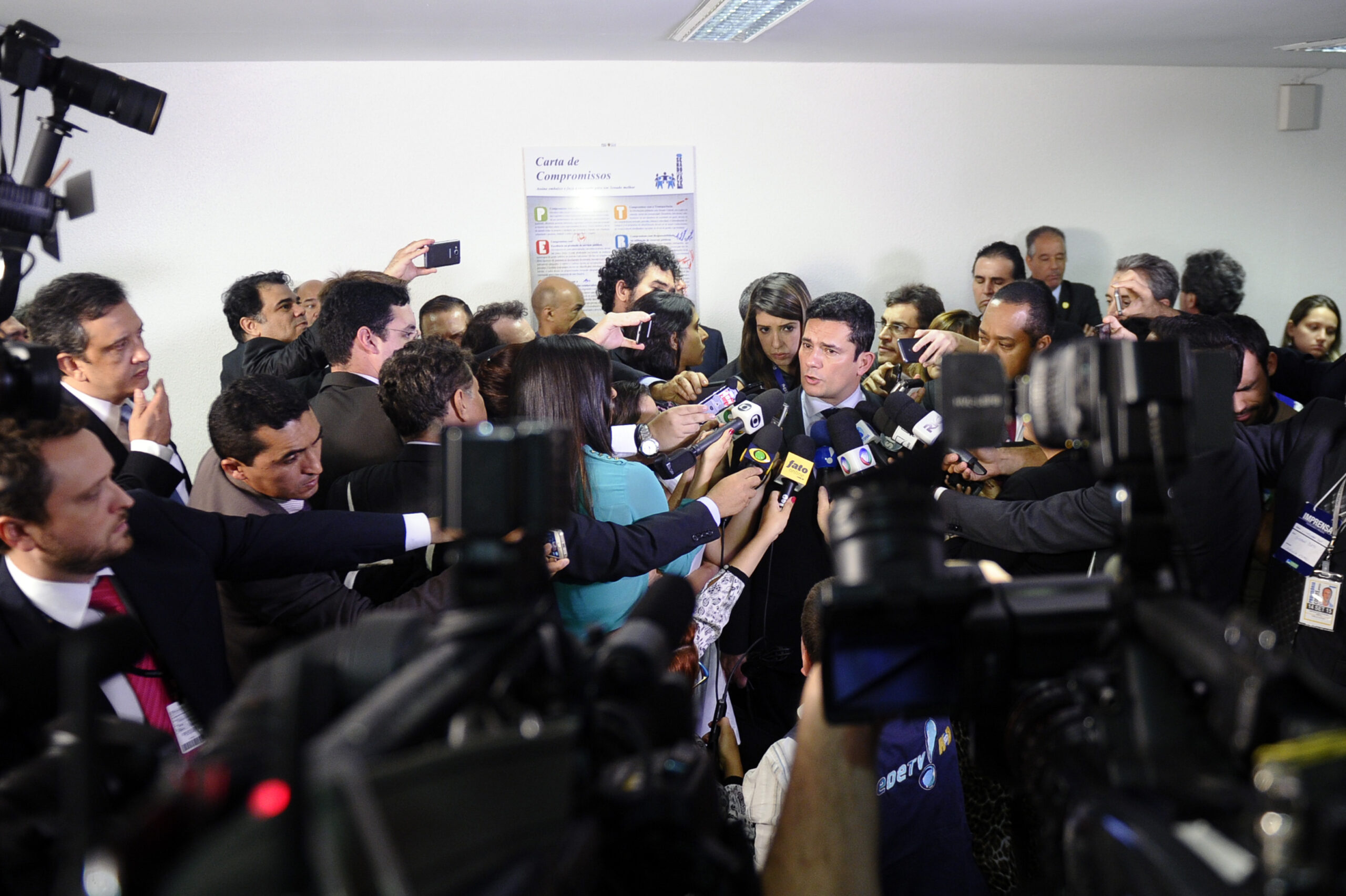
Sérgio Moro holding a press conference in September 2015. (Marcos Oliveira/Agência Senado, Wikimedia Commons)
Here is where we find the toxic Banestado-Car Wash connection. Considering what is already public domain about Moro’s modus operandi on Car Wash, as he altered names in documents with the single-minded objective of sending Lula to jail, the challenge now would be to prove how Moro “sold” non-convictions related to Banestado. He has a very convenient legal out: no “body” was found (or formally brought back to criminal proceedings in Brazil), so no one could be found guilty of murder.
As we plunge into excruciating details, Banestado increasingly looks and feels like the Ariadne’s thread that may lead to the beginning of the destruction of Brazil’s sovereignty. It is a tale full of lessons to be learned by the whole Global South.
The Black Market Dollar King
Castilho, in that epic podcast, rang alarm bells when he referred to $17 million that had transited the Banestado branch in New York and then was sent, of all places, to Pakistan. Castilho and his team discovered that a few months after 9/11. He told me his investigators would dig it all up again and that a report exists indicating the origin of these funds.
This is the first time such information has surfaced – and the ramifications may be explosive. We’re talking about dodgy funds, arguably from drugs and weapons operations, leaving the Triple Border Area – Brazil, Argentina, Paraguay – which happens historically to be a top site for CIA and Mossad black ops.
Financing may have been provided by the so-called King of The Black Market Dollars, Dario Messer, via CC5 accounts. It’s no secret that black market operators at the Tri-Border Area are connected to cocaine trafficking via Paraguay – and also to evangelicals. That is the basis of what Maya, Leirner and I have already described as Cocaine Evangelistan.
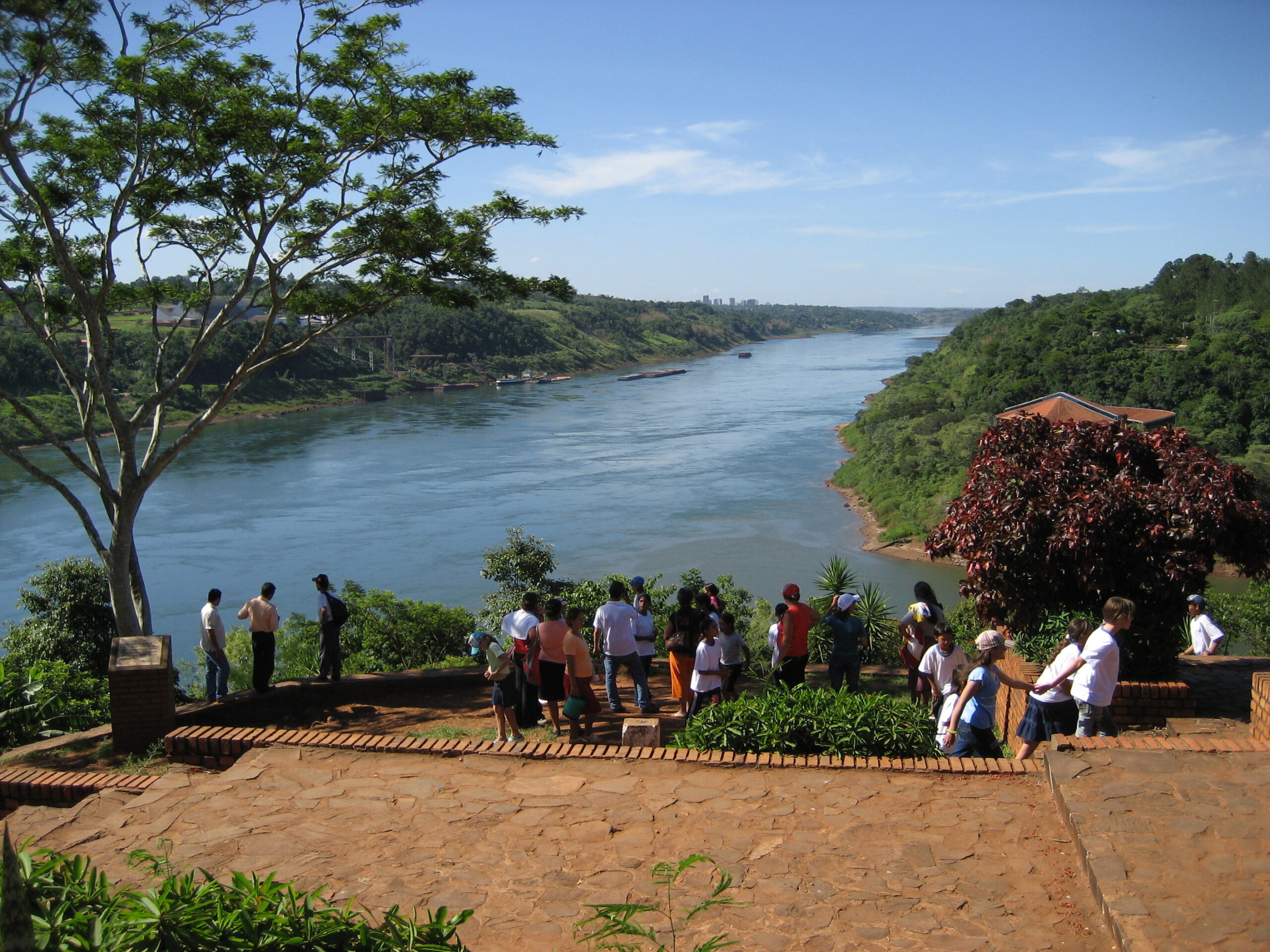
View from the Argentine side of the Triple Border Area. (Wikimedia Commons)
Messer is an indispensable cog in the recycling mechanism inbuilt into drug trafficking. Money travels to fiscal paradises under imperial protection, is duly laundered, and gloriously resurrects on Wall Street and the City of London, with the extra bonus of the U.S. easing some of its current account deficit. Cue Wall Street’s “irrational exuberance.”
What really matters is free circulation of cocaine — hidden in the odd soya cargo, something that comes with the extra benefit of securing the well being of agro-business. That’s a mirror image of the CIA heroin ratline in Afghanistan I detailed here.
Most of all, politically, Messer is the notorious missing link to judge Moro. Even mainstream O Globo newspaper was forced to admit, last November, that Messer’s shadowy businesses were “monitored” nonstop for two decades by different U.S. agencies out of Asuncion and Ciudad del Este in Paraguay. Moro for his part is had very close relationships with the FBI, CIA and the Department of Justice.
Messer may be the joker in this convoluted plot. But then there’s the Maltese Falcon: There’s only one Maltese Falcon, as the John Huston classic immortalized it. And it’s currently lying in a safe in Switzerland.
I’m referring to the original, official documents submitted by construction giant Odebrecht to the Car Wash investigation, which have been undisputedly “manipulated,” “allegedly” by the company itself, possibly in collusion with (then) Judge Moro and the prosecution team led by Deltan Dallagnol.

Roberto Requiao. (From his Twitter account)
This was done possibly for the purpose of incriminating Lula and persons close to him, but also – crucially – to delete individuals’ names who should never be brought to light, or justice.
The first serious political impact after the release of the Banestado leaks by Duplo Expresso is that Lula’s lawyers Cristiano and Valeska Zanin have finally requested Swiss authorities to hand over the originals.
Ex-Senator and former Governor Robert Requiao of Paraná state was the only Brazilian politician to publicly ask Lula, back in February, to go for the documents with the list in Switzerland. It is no surprise that Requiao was the first public figure in Brazil to now ask Lula to make all this content public once the former president gets hold of it.
The real, not adulterated Odebrecht list of people involved in corruption revealed by Duplo Expresso is crammed with big names – including the judiciary elite.
By comparing the two versions, Lula’s lawyers may finally be able to demonstrate the falsification of “evidence” that led to the jailing of Lula but also, among other developments, the exile of Ecuador’s former President Rafael Correa; the imprisonment of Correa’s vice president, Jorge Glas; the imprisonment of Peru’s former President Ollanta Humala and wife and, most dramatically, the suicide of Peru’s former two-time President Alan Garcia.
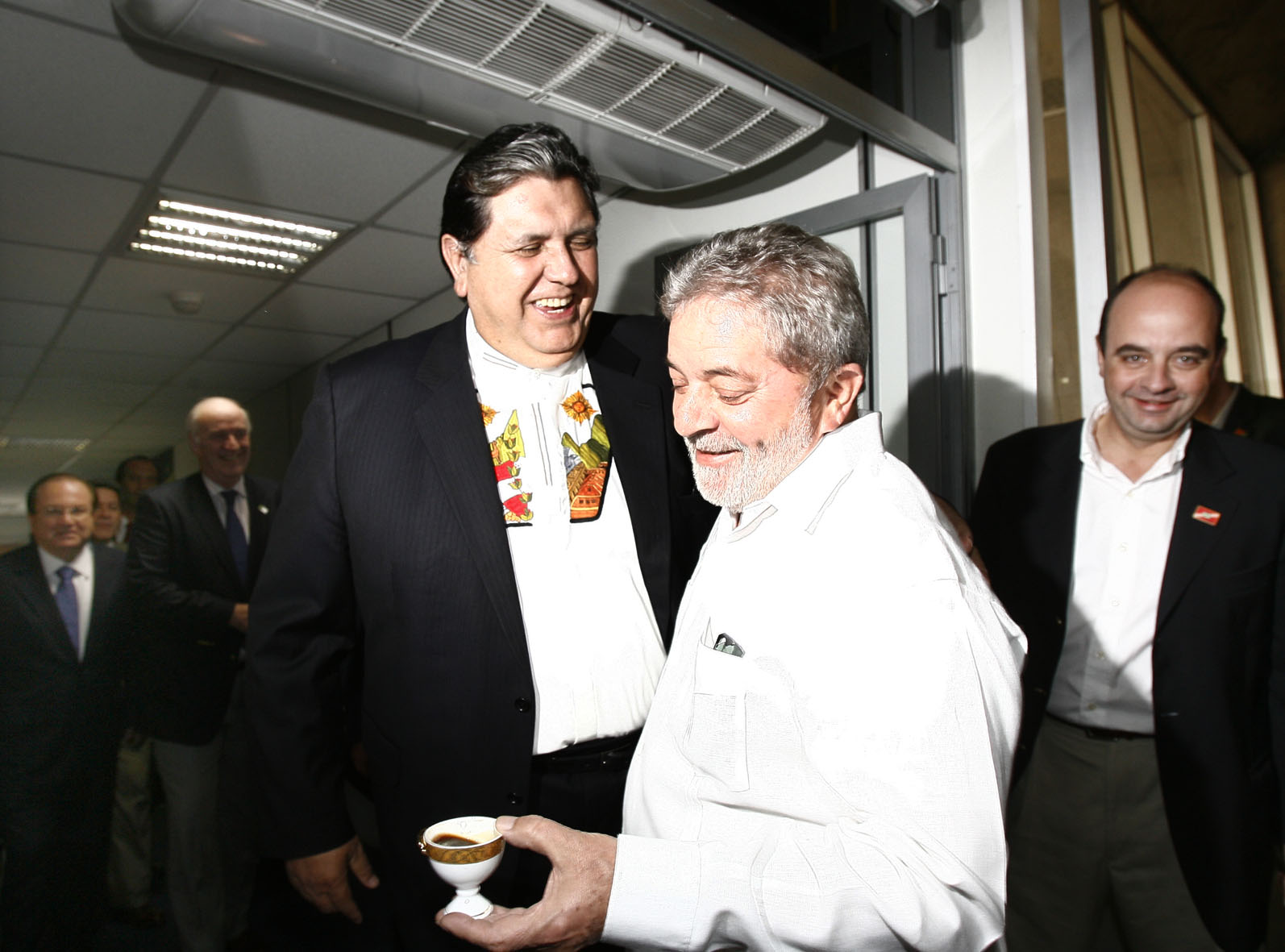
Peru’s Alan García, at left, in 2010 with Brazil’s Luiz Inácio Lula da Silva. (Ministerio de Relaciones Exteriores from Perú, CC BY-SA 2.0, Wikimedia Commons)
The Brazilian Patriot Act
The big political question now is not in fact to uncover the master manipulator who buried the Banestado scandal two decades ago. Rather, as anthropologist Leirner details it, what matters most is that the leaked CC5 accounts focus on how the corrupted Brazilian bourgeoisie, with the help of their political and judicial partners, both national and foreign, solidifies itself as a rentier class, while remaining submissive and kept in check by “secret,” imperial files.
The Banestado leaks and the CC5 accounts should be seen as a political opening for Lula to go for broke. This is all-out (Hybrid) War. Blinking is not an option. The geo-political and geo-economic project of destroying Brazilian sovereignty and turning it into an imperial sub-colony is winning – hands down.
A measure of the explosiveness of the Banestado leaks and CC5gate has been the reaction by assorted limited hangouts: a thundering silence that encompasses leftist parties and alternative, supposedly progressive media. Mainstream media, for whom judge Moro is a sacred cow, at best spins it as “old story,” “fake news” and even a “hoax.”
It’s now clear that creditors of the Brazilian state were, originally, debtors. Comparing different accounts, it’s possible to square the circle on Brazil’s legendary “fiscal imbalance” – exactly as this plague is brought up, once again, with the intent of decimating the assets of the ailing Brazilian state. Finance Minister Paulo Guedes, a neo-Pinochetist and Milton Friedman cheerleader, has already warned he’ll keep selling state companies like there’s no tomorrow.
Lula’s plan B would be to clinch some sort of deal that would bury the whole dossier — just like the original Banestado investigation was buried two decades ago — to preserve the leadership of the Workers’ Party as domesticated opposition, and without touching on the absolutely essential issue: how Finance Minister Guedes is selling out Brazil.
That would be the line favored by Fernando Haddad, who lost the presidential election to Bolsonaro in 2018: a sort of Brazilian Michelle Bachelet (Chile’s former president), an ashamed neoliberal sacrificing everything to have yet another shot at power possibly in 2026.
Were Plan B to happen it would galvanize the wrath of trade unions and social movements – the flesh and blood of Brazilian working classes that are on the verge of being totally decimated by neoliberalism on steroids with the toxic combination of the U.S.-inspired, Brazilian version of the Patriot Act, replete with military schemes to profit from “Cocaine Evangelistan”.
All this after Washington – successfully – nearly destroyed national champion Petrobras, an initial objective of the NSA spying. Zanin, Lula’s lawyer, also adds – maybe too late – that the “informal cooperation” between Washington and the Car Wash op was in fact illegal (according to decree number 3.810/2001).
What Will Lula Do?
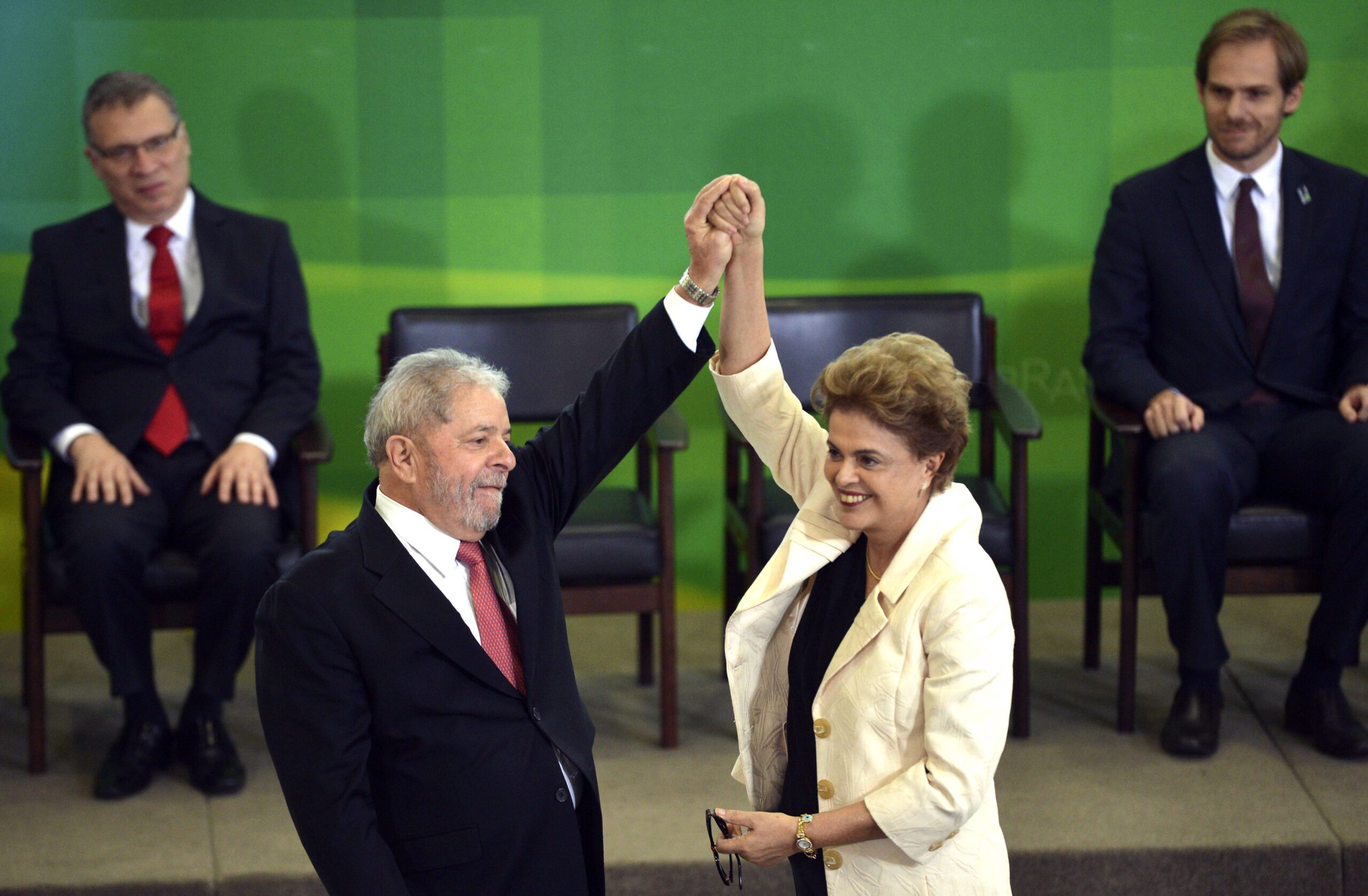
Luiz Inácio Lula da Silva (Lula) sworn in as chief of staff by President Dilma Rousseff, March 17, 2016. (José Cruz, Agência Brasil, CC BY 3.0, Wikimedia Commons)
Included in the leaked list is Banestado “VIP list.” It includes the current president of the Supreme Electoral Tribunal, Supreme Court Justice Luis Roberto Barroso, bankers, media tycoons and industrialists. Car Wash prosecutor Deltan Dallagnol is very close to Barroso, the neoliberal Supreme Court justice in question.
The VIP list should be read as a road map of the money laundering practices of the Brazilian 0.01 percent – roughly estimated to be 20,000 families who own the close to $1 trillion of Brazilian internal debt. A great deal of those funds had been recycled back to Brazil as “foreign investment” through the CC5 scheme back in the 1990s. And that’s exactly how Brazil’s internal debt exploded.
Still no one knows where the Banestado-enabled torrent of dodgy money actually landed. The “body bag” was never formally acknowledged to have been brought back from New York and never made its way into the criminal proceedings. Yet money laundering is still in progress – and thus the statute of limitation does not apply – so somebody, anybody would have to be thrown in the slammer. It doesn’t seem that will be the case anytime soon, though.
Meanwhile, enabled by the U.S. Deep State, transnational finance and local comprador elites, some in uniform and some in robes, the slow motion Hybrid War coup against Brazil keeps rambling on. And day by day inching closer to full spectrum dominance.
The key question is: what will Lula do about it?
A version of this article first appeared on The Asia Times.
The views expressed are solely those of the author and may or may not reflect those of Consortium News.
Please Contribute to Consortium
News on its 25th Anniversary
Donate securely with  PayPal here.
PayPal here.
Or securely by credit card or check by clicking the red button:

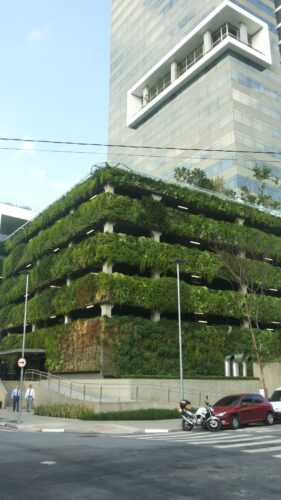
Because the majority of the owners of media have a vested interest in ignoring financial crimes, the result is typically a thunderous silence regardless of the magnitude of the crimes. Unless it actually costs them money themselves. Contrast the rather robust coverage of the Madoff scandal, to the miniscule coverage of the 2008 financial crisis, as it pertains to crimes of individuals on Wall Street, or Epstein’s financial ties. The age-old basic journalistic directive of “follow the money” is ignored, if it leads to the financial elites that benefit from it. There’s not even a need to “cancel” any criticism, as the meme would suggest, because it doesn’t even arise in the media-sphere in the first place.
As long as banks are cooperating with criminals, the money laundering will continue. The only way to put these banks under pressure is to exclude them from the US and international banking systems. Good luck my friends….
Also it seems Bolsonaro has beaten the Corona virus with the help of the very generic drugs he and Trump promoted. This will only reinforce his political position.
Lula is out of the game !
Pepe, isn’t there any new young promising politician in Brazil with some integrity ?
Many thanks Pepe Escobar. This is not a unique story, in fact one can make a linkage of the scenario being similar from Cuba to the accelerated build up of Las Vegas, to Arkansas during Iran Contra, to Vietnam, to Australia, and to Ukraine. Always corruption fueled by illegal criminal action in business and politics that often is fueled by drugs and money laundering. The problem is huge and can only be solved by a huge citizen involved reset…
Aothr country that has to turn the police from enemy of the people to friends.
Corruption = the oil of Brazil’s & other S. American nation’s economies. Witout bribes the S. American economies will collaps!!
Try to name a country in the world now not wracked with corruption as the either 10 or one percenters find technological ways to manipulate systems through similar means that corrupted a judiciary into coming down with Citizens United in this country, enabling corruption of every societal institution. And this is occurring in a time of rapid change involving dawning awareness of greater likelihood of everything from nuclear war to lessening access to all that is life providing, from clean air and water to food.
Grande Pepe. Vc orgulha seu país e nem tudo está perdido. Vamos desmascarar essa raça de víboras que compõe a oligarquia da Bananalândia.
Lula, like so many others in this world , is doomed to forever rolling a boulder up a hill in the depths of Hades…
A great article by Pepe . The corruption is dripping from the courts, politicians ,bankers and the casino gambling houses often referred to as Wall Street .
I have been eager to find out what makes Brazil tick and this article is explosive.The level of state corruption is almost unimaginable. How will Brazil ever manage to come out of this heavy stone pressing against their sovereignty with known criminals running for office
with crooked judges clearing the way for them .
In reality, Guy, just how much more corrupt is Brazil than the US? Given how much money flows from “interested parties” to politicos in Congress and the WH; and vice versa, directly or indirectly? Yes, legalized, but just because it’s legalized….
In South and Central American places like Brazil or in African countries – it is easier to see the egregious corruption. Here, less so.
Yeah just take a look at whats going on in America regarding deep corruption around the Steele dossier. Its all coming apart at the seams lets hope this all ends well!
Meet the Steele Dossier’s ‘Primary Subsource’: Fabulist Russian From Democrat Think Tank Whose Boozy Past the FBI Ignored…
hXXps://www.realclearinvestigations.com/articles/2020/07/24/meet_steele_dossiers_primary_subsource_fabulist_russian_at_us_think_tank_whose_boozy_past_the_fbi_ignored_124601.html
Mike barson, very excellent link, many thanks.
This is the greatest scandal in Brazil because it started long time ago, but it still going on!